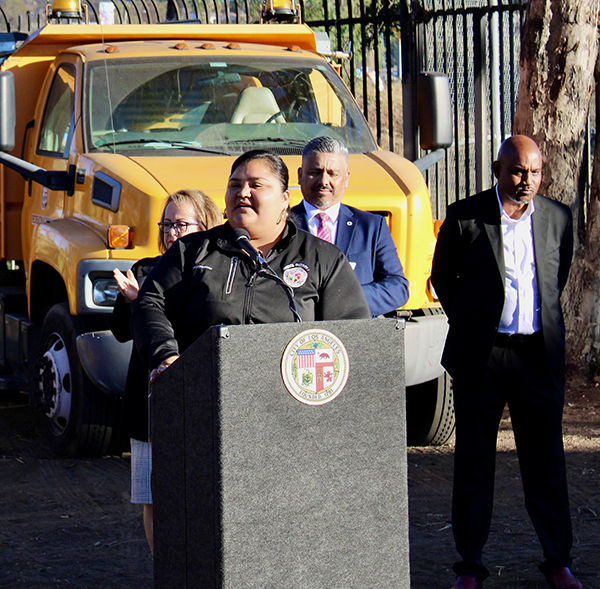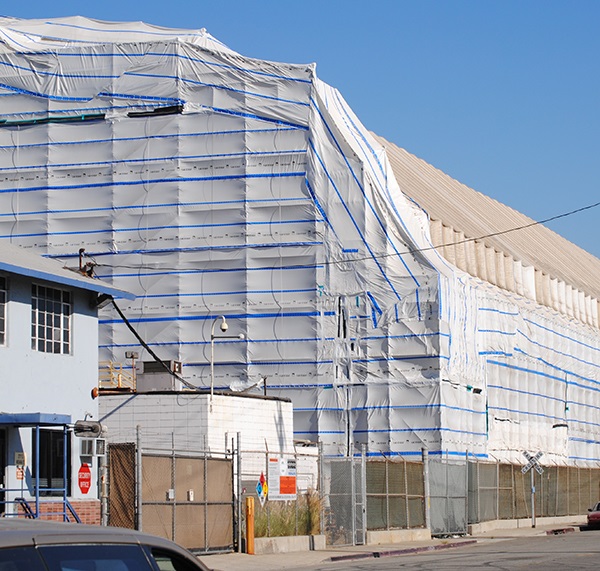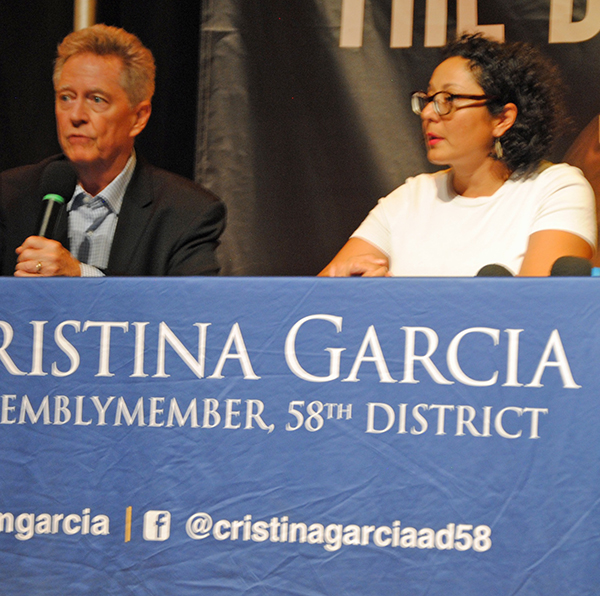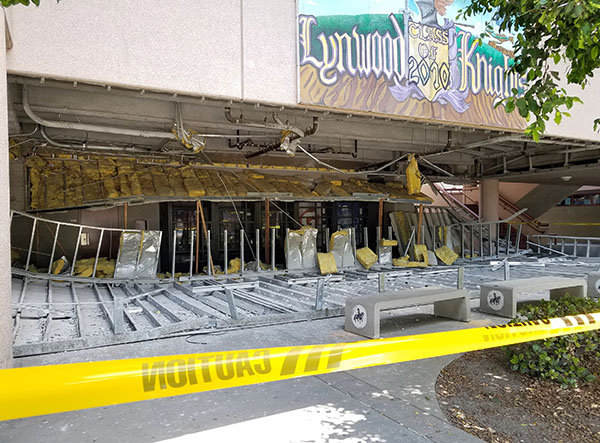Homeless encampment cleaned up in Lincoln Heights

Los Angeles City Councilwoman Eunisses Hernandez speaks at a news conference Oct. 30 announcing the cleanup of a homeless encampment in Lincoln Heights. More than two dozen unhoused people were moved into temporary housing and care facilities as part of the program.
Courtesy photo
Wave Wire Services
LINCOLN HEIGHTS — More than two dozen unhoused individuals have been moved into temporary housing and care facilities as part of the first phase of a $6.3-million initiative to clear an encampment along a four-mile stretch of Harbor (110) Freeway.
City Councilwoman Eunisses Hernandez conducted a news conference Oct. 30 to discuss the recent operation, which received financial support from the state’s Encampment Resolution Fund. She touted the work as a milestone of her “care-first” agenda to address homelessness.
“We promised our unhoused neighbors dignity and a real path to housing,” Hernandez said. “The success of this first week is a result of endless hours of planning, and our friends and neighbors in the Northeast will see more of this work in the coming weeks as we restore the public spaces for community use.”
Outreach teams worked for months, building relationships and developing a so-called “By Name List” of unhoused residents at the encampment, located near Lacy Street and Ave 26, right by the North Central Animal Shelter, according to city officials.
Teams created housing plans for approximately 70 individuals identified in the area.
Last week, during the first phase of the operation, 27 of those individuals were moved indoors and received medical treatment. They were taken to sites operated by LA Global Care, Northeast New Beginnings in Hernandez’s Council District One, as well as by Clare Matrix.
At those sites, homeless individuals received shelter, case management, housing navigation and recuperative care, among other services.
The operation was made possible with aid from the Los Angeles Homeless Services Authority, Caltrans, LA Sanitation, and leading service providers LA Global Care and the USC Street Medicine Team.
“USC Street Medicine has been caring for the beautiful people living in and around Lacy Park for a little over two years, preparing for this moment when they can have a home,” Brett Feldman, director of USC Street Medicine, said in a statement.
State Sen. Maria Elena Durazo, D-Los Angeles, who represents Senate District 26, which encompasses Lincoln Heights and other downtown and northeast L.A. communities, and county Supervisor Hilda Solis joined Hernandez for the announcement, and to show their support.
“For five years, I’ve supported over $1 billion in encampment resolution funds in the state budget because I know these investments save lives,” Durazo said.
Solis emphasized the initiative will help reduce encampments along the Harbor Freeway and bring unhoused individuals inside with long-term support that will aid them in rebuilding their lives.
All individuals moved indoors voluntarily, city officials said. LA Sanitation is expected to clear and restore the area, removing makeshift structures that pose a danger to both unhoused neighbors and the nearby community.
Recreation and Parks staff will begin revitalizing the area by loosening and restoring the soil, repairing the irrigation system and planting grass.
The second phase of the operation is expected to launch this week along a dirt path that runs adjacent to the Harbor Freeway from Avenue 45 to Sycamore Grove Park, according to city officials.
The total grant award of $6.3 million was allocated to the contractor, Los Angeles Global Care. The initial 12-month period, which covered phase one of the operation, used $2.1 million with the remaining funds to cover a potential one-to-two-year extension for the program.
Of the $2.1 million, city officials said dollars were distributed as follows:
• $624,930.49 for salaries and employee benefits, and covers staff for program management, case management such as interim and time limited subsides, housing navigation, 24-hour monitors, drivers and maintenance.
• Nearly $1.3 million for non-personnel costs such as interim sheltering operations (leasing, utilities, meals, supplies and startup costs), and rapid rehousing/time limited subsidy assistance (including rental assistance, security deposits and landlord incentives).
• And $190,419.51 in administrative expenses.
Hernandez was recently criticized by homeless advocates and unhoused individuals for an operation on Oct. 9 to clear out an encampment in Westlake on Mountain View Avenue just off Beverly Boulevard.





